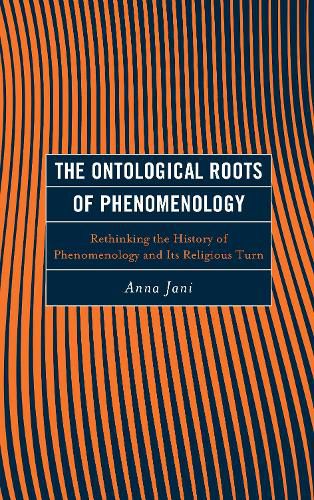Readings Newsletter
Become a Readings Member to make your shopping experience even easier.
Sign in or sign up for free!
You’re not far away from qualifying for FREE standard shipping within Australia
You’ve qualified for FREE standard shipping within Australia
The cart is loading…






In The Ontological Roots of Phenomenology: Rethinking the History of Phenomenology and Its Religious Turn, Anna Jani examines the common methodological background of phenomenology. Through attention to the phenomenon of being, the existential experience of religiosity can be phenomenologically described by the ontological difference between being and beings. Jani demonstrates that the methodological inquiries connect closely with the ontological source of phenomenology. First, she elaborates on the contributions of Hedwig Conrad-Martius, Roman Ingarden, and Edith Stein from the point of view of Heidegger’s influence on the early phenomenologists from Husserl’s students. Second, she analyzes Heidegger’s reinterpretation of his own earlier thinking after the turn, which is formulated in the idea of the new beginning of philosophical thinking in the Contributions to Philosophy. In the context of clarifying the difference between being and beings, her third hypothesis about Ricoeur’s critique of Heidegger reveals an ethical level. The primordiality of the ethical dimension of the action reveals the ontological foundation of the hermeneutical-phenomenological situation.
$9.00 standard shipping within Australia
FREE standard shipping within Australia for orders over $100.00
Express & International shipping calculated at checkout
In The Ontological Roots of Phenomenology: Rethinking the History of Phenomenology and Its Religious Turn, Anna Jani examines the common methodological background of phenomenology. Through attention to the phenomenon of being, the existential experience of religiosity can be phenomenologically described by the ontological difference between being and beings. Jani demonstrates that the methodological inquiries connect closely with the ontological source of phenomenology. First, she elaborates on the contributions of Hedwig Conrad-Martius, Roman Ingarden, and Edith Stein from the point of view of Heidegger’s influence on the early phenomenologists from Husserl’s students. Second, she analyzes Heidegger’s reinterpretation of his own earlier thinking after the turn, which is formulated in the idea of the new beginning of philosophical thinking in the Contributions to Philosophy. In the context of clarifying the difference between being and beings, her third hypothesis about Ricoeur’s critique of Heidegger reveals an ethical level. The primordiality of the ethical dimension of the action reveals the ontological foundation of the hermeneutical-phenomenological situation.